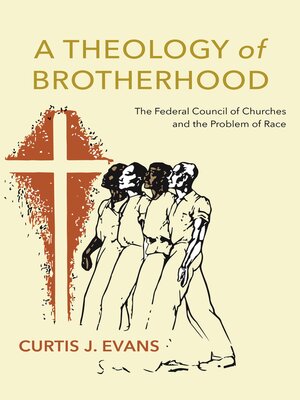A Theology of Brotherhood
ebook ∣ The Federal Council of Churches and the Problem of Race
By Curtis J. Evans

Sign up to save your library
With an OverDrive account, you can save your favorite libraries for at-a-glance information about availability. Find out more about OverDrive accounts.
Find this title in Libby, the library reading app by OverDrive.



Search for a digital library with this title
Title found at these libraries:
| Library Name | Distance |
|---|---|
| Loading... |
Examines the influence of the Federal Council of Churches' Department of Race Relations
A Theology of Brotherhood explores how the national umbrella Christian organization, the Federal Council of Churches, acted as a crucial conduit and organizational force for the dissemination of "progressive" views on race in the first half of the twentieth century.
Drawing on years of archival research, Curtis J. Evans shows that the Council's theological approach to race, and in particular its anti-lynching campaign, were responsible for meaningful progress in some white Protestant churches on racial issues. The book highlights the contributions that their religious vision made in expanding and propagating a civic nationalist tradition that was grounded in a "universal brotherhood" and belief in the equality of all human beings, over against a racial nationalist ideology that conceived of America in ethno-racial terms.
Evans makes the case that this predominantly white religious organization contributed a distinctive religious voice to visions of a pluralistic democracy, racial and ethnic diversity, and social and political reform. The volume adds a missing voice to the literature on lynching in the early twentieth century, which tends to focus primarily on the NAACP and other secular organizations.







